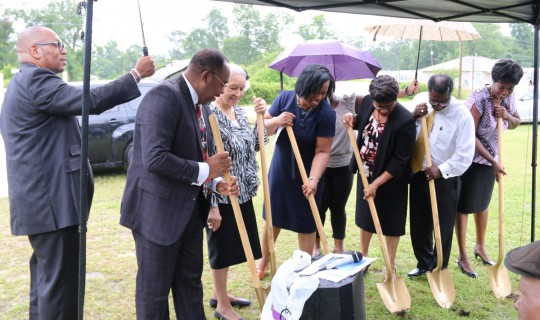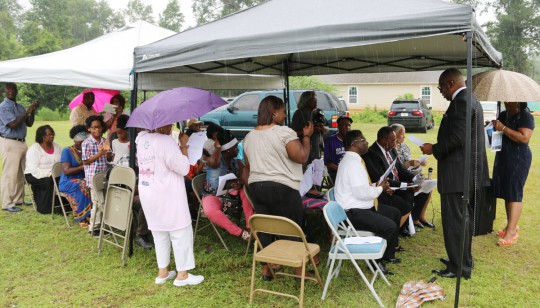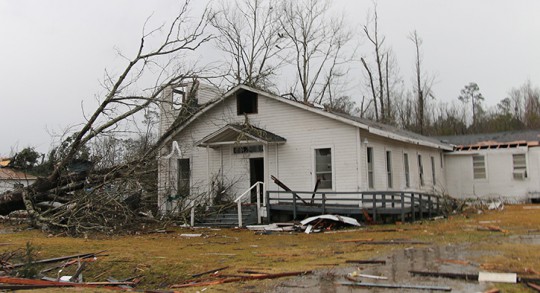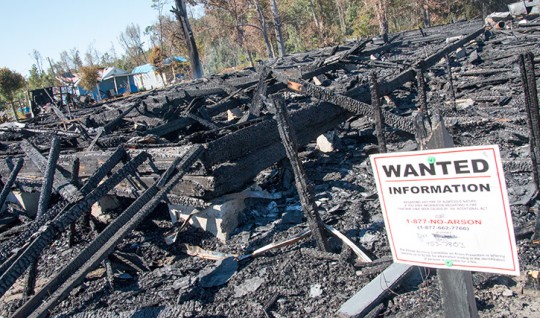Florida Gov’t Weekly Roundup: Summer Bummer?
July 2, 2017
Aside from the occasional hurricane, there are few elements of drama in most Tallahassee summers. The Legislature is out of town. Many of the statewide elected officers spend a lot of time elsewhere. The population drops precipitously as university students take their break.
 Summer seemed to officially begin this week, as Gov. Rick Scott drained the last drops of suspense from the legislative session and its aftermath. He signed almost 30 bills and vetoed a few. And he named Jimmy Patronis, a former public service commissioner and onetime state representative, as the state’s new chief financial officer, filling the spot being vacated by Jeff Atwater.
Summer seemed to officially begin this week, as Gov. Rick Scott drained the last drops of suspense from the legislative session and its aftermath. He signed almost 30 bills and vetoed a few. And he named Jimmy Patronis, a former public service commissioner and onetime state representative, as the state’s new chief financial officer, filling the spot being vacated by Jeff Atwater.
One bit of controversy that emerged during the spring has yet to be hammered out, as the Florida Supreme Court weighs whether Scott overstepped his bounds by taking death-penalty cases away from a state attorney who said she would not pursue capital punishment. But even there, the questions from justices seemed to leave little doubt about which way the final ruling would go.
Summer has come.
HAIL TO THE CHIEF FINANCIAL OFFICER
Atwater’s decision to leave office more than a year early so he could take a position at Florida Atlantic University gave Scott a rare opportunity to fill a seat on the Florida Cabinet, whose approval Scott needs for some of the actions he’d like to take.
And the appointment of Patronis — a loyal ally with a mix of political and business experience — was in many ways vintage Scott. The governor had already named Patronis to the Constitution Revision Commission and, before that, to the utility-regulating Public Service Commission — a job Patronis had to give up to take the CFO post.
Patronis, who served in the House for eight years, was one of the first lawmakers to endorse Scott in 2010. At the time, most GOP legislators were backing then-Attorney General Bill McCollum for the party’s gubernatorial nomination.
“He’s got a breadth of knowledge about a lot of things,” Scott said during an appearance at Patronis’ family-owned Capt. Anderson’s Restaurant in Panama City.
Unsurprisingly, the Florida Democratic Party was not as taken with the choice. They slammed the elevation of Patronis as “cronyism.”
“Floridians are facing rising insurance rates and stagnant wages, but Rick Scott is propping up yet another yes-man rather than prioritizing the needs of working Floridians,” Democratic spokeswoman Johanna Cervone said in a prepared statement. “This governor has stacked nearly every appointment with special interest lackeys rather than the most qualified candidates.”
Even some Republicans questioned the pick. Pasco County Tax Collector Mike Fasano, a frequent Scott critic who served in the Legislature with Patronis, tweeted Monday: “Let’s not forget Florida’s new CFO approved higher utility rates on millions of Duke Energy & Florida Power & Light customers.”
Breadth of knowledge or not, Patronis conceded to reporters later in the week that he has some catching up to do.
Personal-injury auto protection, insurance-related assignment of benefits and even the future of those now working for him are all matters Patronis said he hopes to learn about over the next month — or at least before his first Cabinet meeting on Aug. 16.
“You have to remember I came from the restaurant business, so everybody is a customer,” Patrons said Friday morning after being sworn in to the statewide Cabinet post by Chief Justice Jorge Labarga during a brief ceremony in Scott’s office. “I look forward to learning as much as I can from other stakeholders in this office. And don’t worry, CFO Atwater’s phone is programmed in my phone and I will be using it frequently.”
VENI VIDI VETO
Outside of using his line-item veto to strike items from the state budget, Scott has often gone easy on deploying his red pen against the Legislature. But this year, he used it on legislation 11 times — including five times this week, as he wrapped up his work on the bills approved by lawmakers.
In axing one of those measures, he pointed to a high-rise fire in London that killed dozens of residents as a reason to reject easing fire-protection requirements for older condominium buildings in Florida.
The bill (HB 653), which passed the Legislature with only one dissenting vote, dealt with requirements for retrofitting high-rise condominium buildings with fire sprinklers and other types of safety systems. The bill would have pushed back deadlines for the work and provided an avenue for condominium residents to vote to opt out of retrofitting.
Supporters pointed to potentially high costs for condominium residents, but the state fire marshal’s office and fire-protection groups asked Scott to veto the measure.
In his veto message, Scott cited the June 14 fire at Grenfell Tower in London that killed dozens of people.
“Decisions regarding safety issues are critically important, as they can be the difference between life and death. Fire sprinklers and enhanced life safety systems are particularly effective in improving the safety of occupants in high-rise buildings and ensure the greatest protection to the emergency responders who bravely conduct firefighting and rescue operations,” Scott wrote. “While I am particularly sensitive to regulations that increase the cost of living, the recent London high-rise fire, which tragically took at least 79 lives, illustrates the importance of life safety protections.”
Among the other would-be laws that Scott turned away was a bill (HB 937) that would have required the Florida Lottery to post warnings about the addictive nature of lottery games.
“This bill imposes burdensome regulations on the Lottery and its retail partners, and many of the notice provisions are duplicative of current Lottery initiatives,” Scott wrote in his veto message.
But the governor did sign 29 other pieces of legislation Monday, including measures boosting spending on education, tourism marketing and economic development that were approved in a special session in June.
The bills Scott approved included perhaps one of the hardest-fought wins of his time as governor: a measure (HB 1A) that provided $76 million for the tourism-marketing agency Visit Florida; established an $85 million fund to pay for infrastructure improvements and job training to help draw businesses; and set aside $50 million in repairs to the Herbert Hoover Dike along Lake Okeechobee.
“With this legislation, we can promote public infrastructure projects and job training projects to continue to grow jobs for families in every community of our state,” Scott said in a statement issued by his office. “We know that for Florida to be competitive in domestic and international markets, we need as many tools as possible to attract growing businesses to our state.”
Scott also signed another bill from the special session (HB 3A) boosting per-student spending in the state’s main formula for funding public education by $100.
In all, Scott signed 230 of the bills passed during this year’s regular session, which ended in June, and all four of those approved in the special session.
BYE BYE AYALA?
Reading the tea leaves of judges’ questions is always a tricky practice for courtroom observers. But things certainly looked good for Scott, and grim for 9th Judicial Circuit State Attorney Aramis Ayala after arguments Wednesday at the Florida Supreme Court.
Even the court’s more liberal justices — who might be the most open to Ayala’s stand against seeking the death penalty in capital cases — grilled her lawyer during the arguments.
Scott decided earlier this year to strip Ayala, the state’s first black elected state attorney, of two dozen cases from her circuit, which covers Orange and Osceola counties.
Ayala says that move usurped her authority on the prosecutions, including a high-profile case involving accused cop-killer Markeith Loyd. Scott reassigned the cases to Ocala-area State Attorney Brad King, a veteran prosecutor and outspoken defender of the death penalty who is also a defendant in Ayala’s lawsuit.
Justice R. Fred Lewis, who consistently sides with the liberal-leaning majority in high court opinions, hammered Roy Austin, a lawyer representing Ayala, over how much discretion Ayala and other state attorneys have.
“To my mind, discretion is when you make a decision on a case-by-case basis,” Lewis said. “But this was just the uniform — or am I mistaken — was there not a statement that, ‘I am not going to follow Florida law,’ essentially?”
But Austin, a Washington, D.C., lawyer, argued that “there’s nothing in the law that says discretion has to be on a case-by-case basis.”
He also disputed harsh questioning by some of the court’s more conservative members, including Justices Charles Canady and Alan Lawson, who asked whether Ayala’s position could allow prosecutors to refuse to charge drug dealers with crimes if the state attorneys disagreed with the Legislature’s views on drug policy.
Florida Solicitor General Amit Agarwal, representing Scott, said that no one — including Ayala — has the right to ignore Florida law.
“No one individual, in our society, has the right to say ‘I’ve taken a hard look at this. I’ve considered all of the available evidence. I’ve figured out this issue, and I am going to make a policy judgment that is blanket, across the board.’ That has the practical effect of effectively nullifying it,” Agarwal said.
STORY OF THE WEEK: Scott named Public Service Commissioner Jimmy Patronis, a political ally, to be the state’s next Chief Financial Officer.
QUOTE OF THE WEEK: “You are going to have a situation where, in the state of Florida, you are going to have one circuit with the death penalty and another without it, all over the place. How is that proper? Why do we need the Legislature, if we have that?”— Supreme Court Chief Justice Jorge Labarga, questioning a state attorney’s decision not to seek the death penalty.
by Brandon Larrabee, The News Service of Florida
Volunteers Needed For Escambia Health Facilities Authority
July 2, 2017
The Escambia County Board of County Commissioners is seeking Escambia County residents interested in volunteering to be considered for a possible appointment to the Escambia County Health Facilities Authority. Appointees serve without compensation.
The Escambia County Health Facilities Authority was established in accordance with Florida statutes. The authority’s duties are to assist health facilities in acquisition, construction, financing and refinancing of projects. Knowledge of finance and/or health care administration required. Authority members serve a four-year term of office. Financial disclosure required.
Escambia residents interested in serving on the Escambia County Health Facilities Authority are asked to submit a resume indicating their desire to serve by the close of business on Friday, July 14. Resumes should be submitted to Judy Witterstaeter, Program Coordinator, Board of County Commissioners, P.O. Box 1591, Pensacola, FL 32502 or emailed to jhwitter@myescambia.com.
Resumes submitted to a BCC agenda for consideration will become part of the official minutes and are subject to public records requests.
Requirements:
An authority board member must be a resident of Escambia County. An appointee must be able to attend monthly board meetings during regular business hours and to travel out of town. This requires the board member to have an employer and/or occupation which provides flexibility to engage in volunteer community service activities.
Under its current annual meeting schedule, the authority meets once a month on the third Tuesday at 4 p.m., except for the months of April and September when the board and staff attend educational conferences related to current topics in tax exempt capital financing for healthcare organizations. Monthly time commitments generally range from three to five hours per month, depending on business matters under consideration. For educational conferences, the board members are out of town for up to four days, twice a year.
Board members must have reasonable computer skills and access to a computer running Windows 7 or higher, with the current version of Adobe Reader, Microsoft Word and Excel, and with high-speed internet access to receive email with attachments and download large PDF files containing meeting agendas and backup materials. A new board member will spend three to five hours for the initial orientation and training on authority operations.
Board members must be able and willing to learn about (1) tax exempt bond financing and federal regulations related to municipal bond financing; (2) rules and regulations for municipal bond issuers; (3) current capital financing options and techniques for nonprofit healthcare organizations; and (4) Florida laws related to local government operations and finance.
Blue Wahoos Drop Slugfest To Biscuits 10-8
July 2, 2017
The Pensacola Blue Wahoos beat the Montgomery Biscuits in 12 of the last 14 games at Blue Wahoos Stadium dating back to the 2014 season.
However, Montgomery finally got a W on the Blue Wahoos home field Saturday, 10-8, in a seesaw slugfest in front of a sellout crowd of 5,038. Pensacola had won the first three games of the six-game series.
Has Pensacola manager Pat Kelly seen a game with that much offense in the Southern League?
“Not in this league,” Kelly said. “That was a Pacific Coast League game right there.”
Blue Wahoos right fielder Aristides Aquino doubled to start the fifth inning and scored when catcher Chad Tromp hit a sizzling grounder down the line into right field, putting Pensacola ahead, 7-6. Left fielder Tyler Goeddel then hit a line drive off the left field wall on one hop for the third double of the inning, which scored Tromp for an, 8-6, lead.
However, Montgomery came right back in the sixth inning with two runs to tie it, 8-8, when second baseman Riley Unroe hit a line drive single into right field to drive in catcher Nick Ciuffo. Biscuits third baseman Grant Kaye then clobbered a single to center field to drive in shortstop Andrew Valezquez.
Montgomery first baseman Dalton Kelly then scored what would be the game-winning run in the seventh inning when he reached first base on a perfect bunt down the third base line and scored on a sacrifice fly to right field by DH Mac James that put the Biscuits on top, 9-8.
Kelly is playing in his first Double-A series after being called up Tuesday from High-A Charlotte Stone Crabs where he was hitting .305. The 22-year-old was 5-5 Saturday with his first Double-A home run, a two-run shot that he crushed to left field. He also had two doubles and scored three times.
Kelly has torn up Pensacola pitching, so far, going 10-17 (.588) with four doubles, four runs scored, one home run and four RBIs.
The game had four lead changes, a combined 18 runs and 28 hits, including 11 extra-base hits and five home runs. The teams have identical 4-5 records in the second half of the Southern League season.
Pensacola center fielder Gabriel Guerrero led the hit parade for the Blue Wahoos, going 3-6 with a run scored. This season, the 23-year-old has had 25 multi-hit games, including five three-hit games.
Despite the loss, Guerrero said he has enjoyed seeing the Pensacola lineup produce 22 runs over the past three games. Defense and pitching were the keys to the Blue Wahoos first half crown in the South Division, as the team hit a paltry .228.
“It’s fun with everybody hitting,” Guerrero said. “That’s good. Hopefully, we will win more games.”
Aquino, the Cincinnati Reds No. 6 prospect according to MLBPipeline.com, was 2-4 with two runs scored, a double and hit his ninth homer of the season to lead the ball club. Second baseman Josh VanMeter blasted his second homer in two games and now has three on the season.
Blue Wahoos fans also got to see the return of reliever Zack Weiss, who saved 25 games for the club in 2015. However, one of the Reds top pitching prospects missed the entire 2016 season with a pitching elbow injury that he finally had surgery on earlier this year.
Weiss pitched one inning, allowed one run on two hits and struck out one. Previously, he made 10 appearances for the High-A Daytona Tortugas where he was 2-1 with a 2.08 ERA and allowed opponents a .178 batting average.
“It’s nice to see him back,” Kelly said. “He had a great season here two years ago.”
Ammonia Leak Reported, Residents Shelter In Place
July 1, 2017
An ammonia leak at a Pensacola grocery distributor was contained early Sunday morning. Earlier versions of this story are below.
[UPDATE 12:10 a.m.] Escambia County Emergency Crews have found the source of the anhydrous ammonia leak and it has been secured. The precautionary shelter in place notice is now lifted. Residents in the area may resume normal household activities and no additional safety measures are needed. Crews are in the process of turning the facility back over to the company and their contractors for repairs.
[UPDATE 11:20 p.m.] Hazmat crews are in the process of pinpointing the anhydrous ammonia leak within MDV Nash Finch Company located at 4150 W Blount St. in Pensacola.
The impact is now believed to be onsite only, but as a precautionary measure residents within a 2,500 feet radius of the facility are asked to continue to shelter in place. This is expected to be lifted shortly.
To shelter in place:
- Turn off their air conditioners and fans that may circulate outside air into the home
- Close all windows and doors
- Close any fireplace dampers
- Bring in all pets
- Stay indoors and monitor local media until the all clear is given
Only one minor injury of a first responder, who treated and released on scene, was reported.
A call was received my Escambia County Emergency Commutations at 8:39 p.m. reporting a strong odor. Escambia County Emergency Management, Fire Rescue, and the Escambia County Sheriff’s Office is on scene.
MDV Nash Finch is a wholesale grocery distributing company. The impacted area is just east of Mobile Highway and New Warrington Road.
Rising From The Winds And Ashes: Wesley Chapel Church Breaks Ground
July 1, 2017
A groundbreaking ceremony was held Friday for a new building for the Wesley Chapel Church on Jefferson Avenue in Century.
The church building suffered significant damage when it was shifted off its foundation during the EF-3 tornado that hit Century in February 2016. The congregation continued to meet in an alternative location each Sunday. They made plans to dismantle the old building board by board, hoping to salvage and use as much of the wood as possible from the 1934 structure in a new church building.
But then the building was reduced to ashes and rubble after an arsonist set fire to it on an early Sunday morning in October.
Now the church is moving forward with plans to rebuild after holding fundraisers and taking donations. There’s no firm construction timetable in place.
Pictured above and below: Groundbreaking ceremony at Wesley Chapel in Century on Friday. Pictured three up from the bottom: Wesley Chapel shortly after an EF-3 tornado in February 2016. Pictuered bottom two photos. The remains of the building were destroyed by an arsonist in October 2016. NorthEscambia.com photos, click to enlarge.
Slight Chance Of Evening Showers
July 1, 2017
Here is your official North Escambia area forecast:
Saturday: A 30 percent chance of showers and thunderstorms, mainly after 1pm. Partly sunny, with a high near 90. Calm wind becoming southwest around 5 mph in the morning.
Saturday Night: Partly cloudy, with a low around 75. Southwest wind around 5 mph becoming calm in the evening.
Sunday: A 30 percent chance of showers and thunderstorms. Mostly sunny, with a high near 91. West wind around 5 mph.
Sunday Night: A 20 percent chance of showers and thunderstorms. Partly cloudy, with a low around 73. Southwest wind around 5 mph.
Monday: A 50 percent chance of showers and thunderstorms. Partly sunny, with a high near 90. West wind around 5 mph becoming calm.
Monday Night: A 20 percent chance of showers and thunderstorms. Partly cloudy, with a low around 74. Calm wind becoming southwest around 5 mph.
Independence Day: A 50 percent chance of showers and thunderstorms. Partly sunny, with a high near 89. Calm wind becoming north around 5 mph.
Tuesday Night: A 20 percent chance of showers and thunderstorms. Partly cloudy, with a low around 74. South wind around 5 mph becoming calm.
Wednesday: A 50 percent chance of showers and thunderstorms. Partly sunny, with a high near 89.
Wednesday Night: A 20 percent chance of showers and thunderstorms. Mostly cloudy, with a low around 74.
Thursday: A 50 percent chance of showers and thunderstorms. Partly sunny, with a high near 89.
Thursday Night: A 20 percent chance of showers and thunderstorms. Mostly cloudy, with a low around 73.
Friday: Showers and thunderstorms likely. Partly sunny, with a high near 88. Chance of precipitation is 60%.
125 New Laws Take Effect Today In Florida
July 1, 2017
Rideshare services, such as Lyft and Uber, will have to comply with statewide rules, and students and teachers will be allowed to express their religious beliefs at public schools, under new laws that will go into effect Saturday.
The changes — including two bills from the special session — are among 125 revisions to Florida statutes that hit the books on July 1.
 The new laws include Florida’s $82 billion budget, along with a package offering $91.6 million in tax breaks during the upcoming year and new rules regarding public notification of toxic spills. A controversial law regarding charter schools will also go into effect.
The new laws include Florida’s $82 billion budget, along with a package offering $91.6 million in tax breaks during the upcoming year and new rules regarding public notification of toxic spills. A controversial law regarding charter schools will also go into effect.
Lawmakers sent 241 bills to Scott during the regular legislative session that ended in May, along with four proposals passed during a three-day special session earlier this month.
The governor has signed 234 measures and vetoed 11.
A number of the bills still require approval from voters before becoming law, including a statewide proposal (HB 7107, HJR 7105) that would expand the homestead exemption by $25,000, if approved by voters in November 2018.
Seventy-eight bills became law upon Scott’s signature, including rules for medical marijuana (SB 8A) and a plan (SB 10) that will allow the state to bond money for a controversial reservoir intended to help clean South Florida waterways.
Another 27 laws will go into effect on Oct. 1, including a measure (HB 477) that will impose tougher sentencing for fentanyl possession and distribution.
Here are some of the laws that will hit the books July 1:
BUDGET:
SB 2500, the state’s $80 billion spending plan for 2017-2018, dubbed by the governor’s office as the “Fighting for Florida’s Future” budget. The package outlines funding for state agencies as well as numerous individual local projects.
HB 1A, creates an $85 million “job growth” trust fund for regional economic development projects and workforce training, and provides $75 million for the public-private Visit Florida. The new law also steers $50 million toward repairs on the Herbert Hoover Dike.
HB 3A, adds $215 million for the Florida Education Finance Program, or FEFP, which should boost per-student funding by $100. Scott vetoed spending on the program — which included a $24.49 per-student increase in the main funding formula for public schools — during the regular session.
HB 7022, provides across-the-board pay raises to state employees for the first time since 2013. State law enforcement officers will get a 5 percent hike, while most correctional officers will get an extra $2,500 a year. Judges, state attorneys and public defenders will see 10 percent raises. The legislation also includes changes to health insurance and retirement plans for state employees.
TAX CUTS:
HB 7109, a business-friendly package, has a variety of start dates. The measure provides a three-day back-to-school discount on certain clothes worth up to $60 each, school staples up to $15 each, and personal computers that cost less than $750. Two other key portions of the package — an elimination of sales taxes on feminine hygiene products and a reduction in a commercial lease tax — go into effect on Jan. 1.
LAW ENFORCEMENT:
HB 111, establishes a public-records exemption for identifying information about murder witnesses. Supporters of the bill said many witnesses fear retaliation for cooperating with police.
HB 151, allows the use of “therapy” and “facility” dogs in courts to help provide support for children who testify in cases involving child abuse, abandonment or neglect.
HB 305, allows law-enforcement officers to review footage from their body cameras before filling out reports.
COMMUNICATIONS:
SB 90, carries out a constitutional amendment approved last August aimed at boosting the use of solar energy in the state. The amendment called for extending a renewable-energy tax break for commercial and industrial properties and making renewable-energy equipment exempt from state tangible personal property taxes.
HB 687, limits the ability of local governments to regulate types of equipment known as “small wireless facilities” in public rights of ways. The equipment is for emerging 5G technology.
EDUCATION
SB 396, requires colleges and universities each year to provide students with financial information regarding their student loans.
SB 436, deals with religious expression in schools. The measure is intended to prevent school districts from discriminating against students, parents or school employees on the basis of religious viewpoints or expression.
HB 989, overhauls the state’s policy on instructional materials to allow any county resident — not just parents — to challenge materials, such as books, used at schools.
HB 7069, a wide-ranging education bill that encompasses everything from school testing to recess. The $419 million bill sets aside $140 to encourage charter schools to locate near struggling traditional public schools, and includes funding for extra services for students at struggling schools, teacher bonuses and assistance for parents to help pay for education services for children with disabilities.
HEALTH CARE:
SB 2514, sets up a process for the state Agency for Health Care Administration to ask legislative leaders to release $1.5 billion for the Low Income Pool program after a final agreement is reached with the federal government. The program provides extra money to hospitals that serve large numbers of poor and uninsured patients. The wide-ranging bill also revamps the way nursing homes will be paid in the future in the Medicaid program.
BIRTH CERTIFICATES:
HB 101, allows families to request certificates of “nonviable birth” after miscarriages. Called the “Grieving Families Act,” the measure gives parents the option of seeking certificates of nonviable birth for fetuses lost between the ninth and 20th weeks of gestation.
TRANSPORTATION:
HB 221, creates long-debated statewide regulations for “transportation network companies,” such as Uber and Lyft. The measure, backed by the ridesharing industry, includes insurance and background-check requirements that are less stringent than those sought by local governments.
HB 299, expands the Central Florida Expressway Authority (CFX) to include Brevard County.
SB 368, designates 50 roads and bridges across the state. The measure names sections of Orange County roads after slain Orlando Police Lt. Debra Clayton and the late golf legend Arnold Palmer. In addition, a part of U.S. 441 in Miami-Dade County will be “Muhammad Ali Boulevard,” and a portion of U.S. 90 in Santa Rosa County will honor Wendell Hall, who retired last year after 16 years as the county’s sheriff.
HB 865, increases the allowed weight of natural gas-fueled vehicles from 80,000 pounds to 82,000 pounds, the maximum amount under federal law. The new law also directs the state Department of Transportation to study the economic feasibility of acquiring the Garcon Point Bridge from the Santa Rosa Bay Bridge Authority, and orders a study of the boundaries of the transportation department’s seven districts to determine the cost of creating an additional district around Fort Myers.
HB 1169, designates part of a road in Pinellas County as “Officer Charles `Charlie K’ Kondek, Jr., Memorial Highway,” after a longtime Tarpon Springs police officer who was killed in the line of duty in 2014.
ENVIRONMENT:
SB 1018, requires stepped-up public notification of pollution incidents. The law was spurred by controversies last year in response to the handling of a sinkhole at a Mosaic phosphate plant in Polk County and sewage discharges into Tampa Bay. Owners or operators of facilities responsible for pollution will have to submit reports within 24 hours to the Florida Department of Environmental Protection. The department, in turn, will be required to post the information online within 24 hours.
BOATING:
HB 711, expands a registration-fee discount for boaters to purchase certain locator beacons. The discount was created last year in reaction to the disappearance of Austin Stephanos and Perry Cohen, two 14-year-olds from Tequesta, who went missing in July 2015 after steering a 19-foot boat out of the Jupiter Inlet into the Atlantic Ocean.
HB 7043, allows the owners of private submerged lands adjacent to Outstanding Florida Waters or an aquatic preserve to ask the Fish and Wildlife Conservation Commission to establish boating-restricted areas solely to protect any seagrass and contiguous seagrass habitat within their private property.
STATE PARKS:
HB 185, creates a 50 percent entry-fee discount to state parks for families operating a licensed family foster home, and a one-time, annual entrance pass for families that adopt a special needs child.
by Jim Turner, The News Service of Florida
Corcoran Names Don Gaetz To Triumph Gulf Coast Board
July 1, 2017
Former Florida Senate President Don Gaetz, who pushed for the creation of a non-profit board to oversee BP oil spill money, was appointed to the seven-member Triumph Gulf Coast board of directors by House Speaker Richard Corcoran on Friday.
“I can think of no one better suited to ensure fair and equitable distribution of the settlement funds,” Corcoran, R-Land O’ Lakes, said in a release.
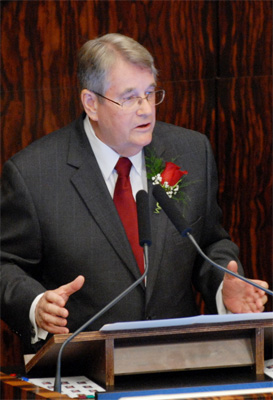 While in the Legislature, Gaetz, who served as Senate president during the 2013 and 2014 legislative sessions, was instrumental in establishing the Oil Spill Economic Recovery Act. The act steers three-fourths of the $2 billion the state is to receive over the next 13 years from BP — in a settlement over the 2010 Deepwater Horizon disaster in the Gulf of Mexico — to the eight Panhandle counties heavily impacted by the disaster, which dumped millions of gallons of oil less than 100 miles off the Florida coast.
While in the Legislature, Gaetz, who served as Senate president during the 2013 and 2014 legislative sessions, was instrumental in establishing the Oil Spill Economic Recovery Act. The act steers three-fourths of the $2 billion the state is to receive over the next 13 years from BP — in a settlement over the 2010 Deepwater Horizon disaster in the Gulf of Mexico — to the eight Panhandle counties heavily impacted by the disaster, which dumped millions of gallons of oil less than 100 miles off the Florida coast.
Also on Friday, Senate President Joe Negron, R-Stuart, appointed Jason Shaof, vice president of the St. Joe Natural Gas Company, to the Triumph Gulf Coast board.
by The News Service of Florida
Measures signed into law this year (HB 7077, HB 7079) will release the first $300 million of $400 million already received by the state to Bay, Escambia, Franklin, Gulf, Okaloosa, Santa Rosa, Wakulla and Walton counties through the non-profit Triumph organization. The law set minimums for how much each county will receive and expanded the Triumph board from five to seven members, with the goal of providing more representation for less-populated counties. Other members of the board include former House Speaker Allan Bense, who serves as the chairman; Stan Connally Jr.; Pam Dana; Stephen Riggs IV; and Bob Bonezzi.
City To Appeal Federal Court Order To Remove Giant Cross
July 1, 2017
The mayor and City of Pensacola will ask a federal court to protect a cross memorial that has stood in a city park for over 75 years.
Last week, the ordered the cross at the city’s Bayview Park to be removed by July 19 because it is a religious symbol. The case presents important questions of the relationship between church and state, and the city has retained Becket, a nationally recognized non-profit religious liberty law firm, to handle the appeal for the city free of charge.
 A wooden cross was first placed in Pensacola’s Bayview Park in 1941 by the local chapter of the Junior Chamber of Commerce (Jaycees)—a private, civic, nonprofit organization—as the United States prepared to enter World War II. Since then, the cross has served as a gathering place for both religious and nonreligious groups within the Pensacola community. The original wooden cross was replaced with the current cross by the Jaycees in 1969. For decades, the Jaycees and other groups have hosted community events at the memorial, including Veteran’s Day and Memorial Day remembrances. Today it remains a significant part of the city’s history.
A wooden cross was first placed in Pensacola’s Bayview Park in 1941 by the local chapter of the Junior Chamber of Commerce (Jaycees)—a private, civic, nonprofit organization—as the United States prepared to enter World War II. Since then, the cross has served as a gathering place for both religious and nonreligious groups within the Pensacola community. The original wooden cross was replaced with the current cross by the Jaycees in 1969. For decades, the Jaycees and other groups have hosted community events at the memorial, including Veteran’s Day and Memorial Day remembrances. Today it remains a significant part of the city’s history.
“The Bayview Cross has played an important role in the history of Pensacola for over 75 years,” said Ashton Hayward, mayor of Pensacola. “We have a rich and diverse history that is worth celebrating. The Constitution doesn’t require us to erase our history just because part of that history is religious.”
Bayview Park consists of 28 acres overlooking the scenic Bayou Texar. In addition to a cross in the northeast corner of the park, there is a senior center, amphitheater, two dog parks, tennis courts, a bocce ball court, playground, multiple boat ramps and docks, and a memorial to a local citizen who died in a waterskiing accident.
In May of 2016, four plaintiffs sued the city saying that the cross was offensive. Two of the plaintiffs live in Canada. One has used the cross himself for his own self-described “satanic purposes.” The fourth plaintiff lives outside Pensacola over seven miles from the cross but still says that seeing the cross would be offensive. Although a federal court recognized that the cross “is part of the rich history of Pensacola,” and that the cross “might well pass constitutional muster,” it ruled that the cross has a “religious purpose” and must be removed.
“The Supreme Court has repeatedly said that the government can recognize the religious aspects of our history and culture without violating the Constitution,” said Luke Goodrich, deputy general counsel at Becket, which is defending the City of Pensacola. “We expect the city will win this case.”
Becket, which is representing the city free of charge, also successfully defended a statue of Jesus in Montana memorializing soldiers who died during World War II. Today the city is filing a motion asking the court to allow the cross to remain in place while the City appeals. The city is represented in the trial court by J. Nixon Daniel, III, and Terrie L. Didier of Beggs & Lane. A ruling on the motion is expected before July 19.
Santa Rosa Man Gets 20 Years Federal Prison On Child Porn Charges
July 1, 2017
A Santa Rosa County man is headed to federal prison on child pornography charges.
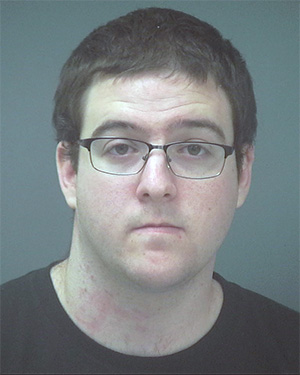 Thomas E. Matassa, 24, was sentenced Friday to 20 years in prison, followed by lifetime supervised release as a sex offender for receipt of child pornography.
Thomas E. Matassa, 24, was sentenced Friday to 20 years in prison, followed by lifetime supervised release as a sex offender for receipt of child pornography.
In February 2016, a detective interviewed Matassa, who admitted to downloading child pornography online. A forensic examination of Matassa’s laptop revealed approximately 200 images of child pornography and more than 30,000 chat messages with underage males to exchange videos and images of child sexual acts. Matassa pled guilty on April 10, 2017.
The case was investigated by the Federal Bureau of Investigation, the United States Immigration and Customs Enforcement Homeland Security Investigations, the Florida Department of Law Enforcement, the Santa Rosa County Sheriff’s Office, the Georgia Bureau of Investigation, and the North Florida Internet Crimes Against Children Task Force. Assistant United States Attorney David L. Goldberg prosecuted the case.
U.S. Attorney Canova said: “Protecting our children from exploitation is a top priority of my office and the Department of Justice. I commend the hard work of our prosecutors and law enforcement professionals who protect our communities and bring child predators to justice.”
“The FBI is committed to protecting children, who are among the most vulnerable in our society,” said Charles P. Spencer, Special Agent in Charge of the FBI Jacksonville Division. “We appreciate the efforts of our many law enforcement partners in this case, and remain committed to working tirelessly with them to identify these predators, and find justice for their victims.”
“Matassa is a dangerous predator who was aggressively targeting young boys online in an
attempt to establish relationships with them,” said FDLE Pensacola Special Agent in Charge
U. S. Department of Justice
Christopher P. Canova
United States Attorney
Northern District of Florida
Jack Massey. “I thank our FDLE agents and law enforcement partners for their dedication and
hard work to take this suspect off the street.”






